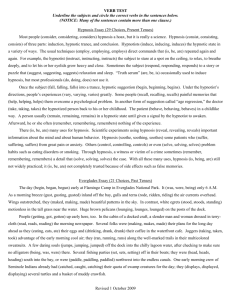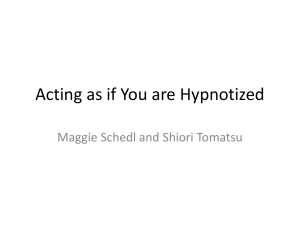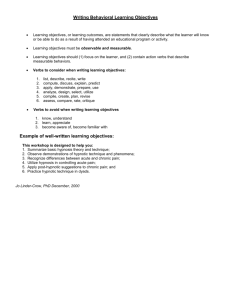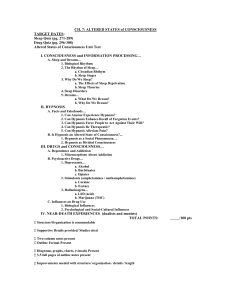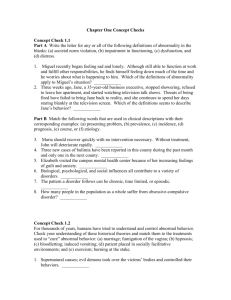338169MyersMod_LG_18
advertisement
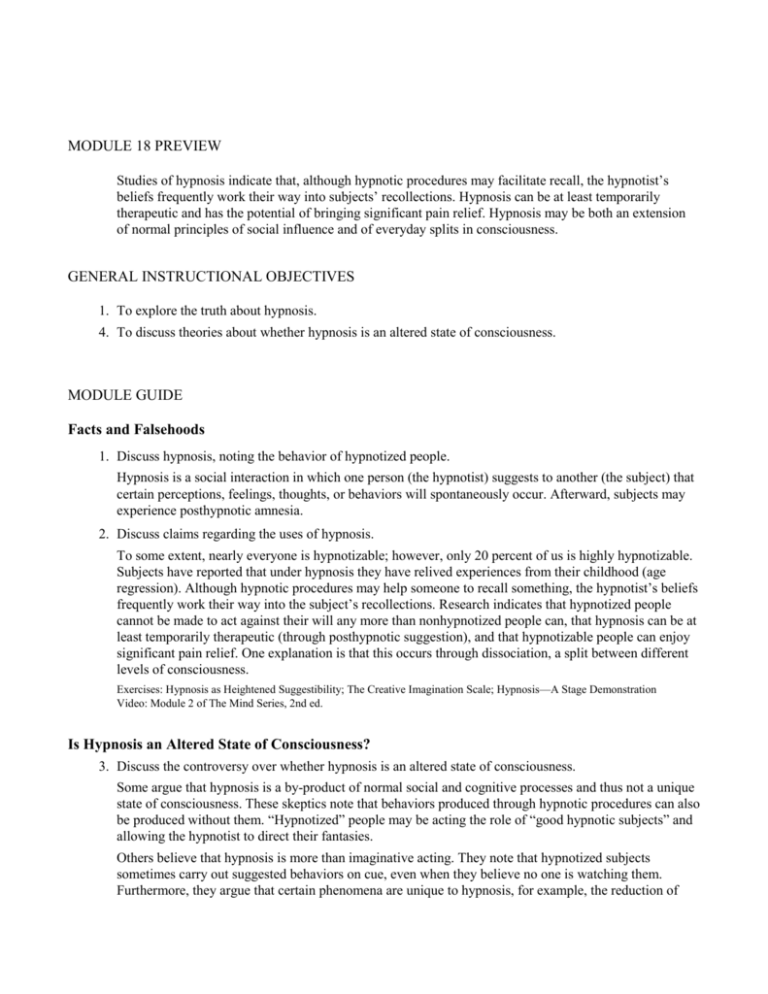
MODULE 18 PREVIEW Studies of hypnosis indicate that, although hypnotic procedures may facilitate recall, the hypnotist’s beliefs frequently work their way into subjects’ recollections. Hypnosis can be at least temporarily therapeutic and has the potential of bringing significant pain relief. Hypnosis may be both an extension of normal principles of social influence and of everyday splits in consciousness. GENERAL INSTRUCTIONAL OBJECTIVES 1. To explore the truth about hypnosis. 4. To discuss theories about whether hypnosis is an altered state of consciousness. MODULE GUIDE Facts and Falsehoods 1. Discuss hypnosis, noting the behavior of hypnotized people. Hypnosis is a social interaction in which one person (the hypnotist) suggests to another (the subject) that certain perceptions, feelings, thoughts, or behaviors will spontaneously occur. Afterward, subjects may experience posthypnotic amnesia. 2. Discuss claims regarding the uses of hypnosis. To some extent, nearly everyone is hypnotizable; however, only 20 percent of us is highly hypnotizable. Subjects have reported that under hypnosis they have relived experiences from their childhood (age regression). Although hypnotic procedures may help someone to recall something, the hypnotist’s beliefs frequently work their way into the subject’s recollections. Research indicates that hypnotized people cannot be made to act against their will any more than nonhypnotized people can, that hypnosis can be at least temporarily therapeutic (through posthypnotic suggestion), and that hypnotizable people can enjoy significant pain relief. One explanation is that this occurs through dissociation, a split between different levels of consciousness. Exercises: Hypnosis as Heightened Suggestibility; The Creative Imagination Scale; Hypnosis—A Stage Demonstration Video: Module 2 of The Mind Series, 2nd ed. Is Hypnosis an Altered State of Consciousness? 3. Discuss the controversy over whether hypnosis is an altered state of consciousness. Some argue that hypnosis is a by-product of normal social and cognitive processes and thus not a unique state of consciousness. These skeptics note that behaviors produced through hypnotic procedures can also be produced without them. “Hypnotized” people may be acting the role of “good hypnotic subjects” and allowing the hypnotist to direct their fantasies. Others believe that hypnosis is more than imaginative acting. They note that hypnotized subjects sometimes carry out suggested behaviors on cue, even when they believe no one is watching them. Furthermore, they argue that certain phenomena are unique to hypnosis, for example, the reduction of pain and the compelling hallucinations. The divided-consciousness theory of hypnosis argues that hypnosis involves dissociation that is more extreme than the everyday dissociations that occur in our information processing. Hilgard suggests that a hidden observer accounts for a hypnotized subject’s awareness of experiences that go unreported during hypnosis. Lecture: Is Hypnosis an Altered State of Consciousness? Transparency: 90 Explaining Hypnosis
